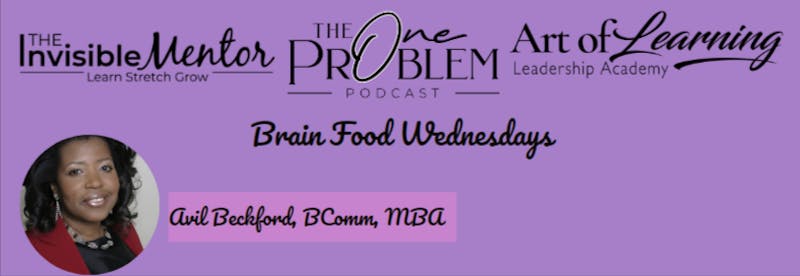Your cart is currently empty!
Brain Food Wednesday: How to Read to Learn What You Need to Know

Dear Reader,
In this week’s newsletter, the 138th issue, I’m writing about reading to learn what you need to know. The rapid changes taking place around us, and the busyness of life, cause a new way of doing things. One of those things that has to change is the way you read.
It’s not about speed reading. Instead, it’s more about reading like a leader, reading intelligently. The most successful leaders read nonfiction books to learn what they need to know. What do you need to know? What challenges are you grappling with and problems you have to solve? Or what questions do you need to answer?
One thing professionals say is that they want to read more books. But they seldom achieve that goal. The issue is the way you read. There is no reason any professional needs to read a book cover-to-cover. Because you’ll seldom find a nonfiction book that needs that kind of attention and investment of your time.
Below, you’ll find the article I wrote, and I hope you find it helpful.
Ask Avil
Reading to Learn What You Need to Know
Reading is important for several reasons. First, it helps develop one’s critical thinking skills. The ability to read and understand complex texts is essential in today’s world. Second, reading also helps develop one’s vocabulary and understanding of grammar. Finally, reading for pleasure can have a positive impact on one’s mental well-being. It can help reduce stress, improve focus and concentration, and promote creativity.
Why do luminaries seem to get idea after idea to drive their businesses forward? Part of the answer is that they know and understand that learning never stops. Many of these leaders are avid readers. Yes, they learn from books, but they also practice what is called leadership reading.
And as a result, it appears to the outside world that they have the Midas touch. However, it’s not just about the new ideas found on the pages of a book. It’s also about new ways of looking at the world. And new perspectives they bring to old problems.
Leaders do not read the same way that average people do. Instead, they read to learn what they need to know. When they read a nonfiction book, they do so because either they want to solve problems or answer questions. That means they’re looking for specific pieces of information.
When they find what they need in the book, they’re finished with the book. That’s just-in-time reading. And that’s why it’s so important to define your purpose for reading, so you know how to identify what you need to learn from the book. Because of the fear of missing out, most people feel compelled to read every page in a nonfiction book.
Change your mindset about what it means to read a book. Think of a book as a solution to your problem, and answers to questions you have. Now you’ve personalized your reading, so you’ll actively read the book, looking to satisfy your needs. Active reading helps you to develop into a leadership reader.
In the book, Turn the Page by Chris Brady, he says that readers are protégés and authors are mentors. He also recommends that you approach every book you want to read with focused and targeted questions.
Usually, I recommend to readers and clients that before they read any nonfiction book, they need to write the questions they want the book to answer. And that’s a good thing. However, Brady says that what is more valuable is when the questions you have address important challenges the reader is currently facing in life, career, family, and business.
That means, when reading any book, you keep your overall challenges and questions in the back of your mind for those serendipitous moments where you’ll also discover solutions and answers that you weren’t looking for specifically in the book you’re reading.
Use books to your advantage to:
- Achieve personal goals.
- Reach professional goals.
- Solve actual workplace problems.
- Answer pressing questions.
Leadership reading – reading to learn what you need to know – is strategic, and will save you lots of time because you’re reading with purpose. So, you can solve your problems and answer questions. This type of reading also forces you to focus on what’s important to you. Are you willing to give this new type of reading a try?
Conclusion: benefits of reading
When you read, you don’t just consume information. You also learn how to process it, how to reflect on it, and how to connect it to what you already know. Reading makes you smarter.
And not just in the book-smart sense of the word. Reading can also make you more empathetic and better able to understand different points of view. It can improve your writing skills and help you become more articulate. It can even make you healthier and happier.
So if you’re looking for a way to boost your brainpower, pick up a book. You might just find that it’s the best decision you ever made.
Join my membership site, Art of Learning Leadership Academy, at an introductory price as we build out the content on the site. Be one of the founding members.
Art of Learning Leadership Academy Membership Site
Until Next Week,
Avil Beckford, Founder, The Invisible Mentor